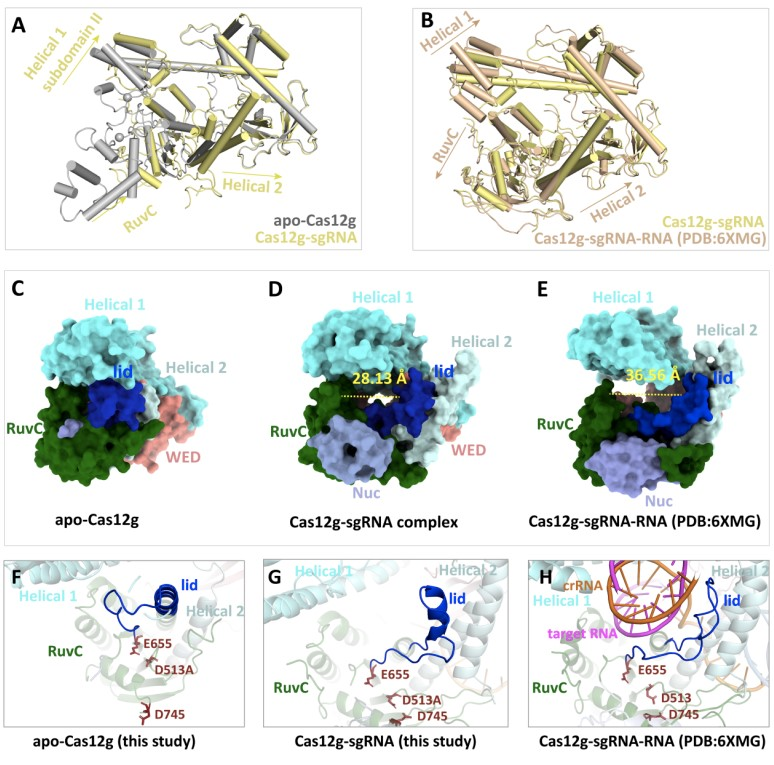The CRISPR-Cas (clustered regularly interspaced short palindromic repeats) system is a system of acquired immunity of bacteria against exogenous nucleic acids. Class 2 CRISP-Cas systems consist of single Cas effector proteins for exogenous DNA or RNA cleavage, and thus are widely applied in RNA editing. In 2019, researchers identified and reported many new types of effector proteins belonging to the class 2 type V Cas12 family, among which Cas 12g stood out by exhibiting RNA-guided ribonuclease (RNase) activity (Yan et al., Science, 2019). In prior investigations, the effector proteins of the Cas12 family targeted DNA cleavage through the conserved RuvC structural domain. But now the discovery of Cas12g presents a new prospect of harnessing Cas12g as an effective RNA editing tool. Therefore, understanding the molecular mechanisms of how the protein Cas12g is activated by target nucleic acids and exhibits its RNase activity holds theoretical significance for future applications and modifications of the CRISPR-Cas12g system. Although Chang Leifu’s research team reported on the structural and functional research into Cas12g and target nucleic acids complexes (Li et al., Nature Chemical Biology, 2021), certain aspects regarding the Cas12g activation and its cleavage of the target nucleic acid substrates have remained unclear. Recently, Professor Ouyang Songying’s team at FNU published an online research paper, titled “Structural transitions upon guide RNA binding and their importance in Cas12g-mediated RNA cleavage” in PLoS Genetics. This research delves deeply into the conformational changes of the protein Cas12g before and after sgRNA binding and the molecular mechanism for cleaving RNA substrates, providing new theoretical guidance for utilizing Cas12g in RNA editing.
FNU is the first completion unit of the paper, with Liu Mengxi and Li Zekai, doctoral students from the College of Life Sciences and the Biomedical Research Center of South China of FNU, as the co-first authors, and Professor Ouyang Songying and Associate Researcher Zhang Bo with FNU as the corresponding authors.
Paper link: https://journals.plos.org/plosgenetics/article?id=10.1371/journal.pgen.1010930

(Translated by Xiao Zhiying/ Reviewed by Xie Xiujuan)
